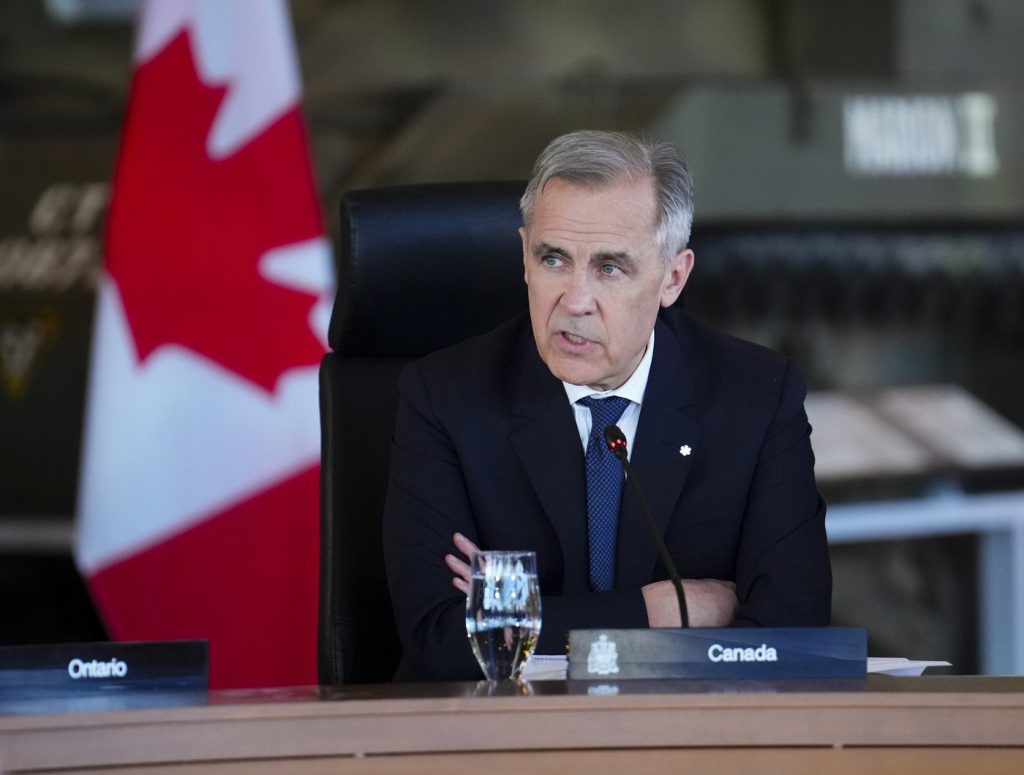OTTAWA – Canada's premiers are entering a significant meeting with Prime Minister Mark Carney in Saskatoon on Monday, bringing their proposals for major "nation-building" infrastructure projects aimed at strengthening the economy amid an ongoing trade war with the United States.
Carney has requested each premier to submit five suggestions for national infrastructure projects. The meeting will focus on selecting which of these projects will be emphasized for fast-tracking through potential legislation that could be introduced as soon as this week.
This discussion is set against a backdrop characterized by an escalating trade conflict with the U.S., revived dialogues regarding separatism in Alberta, and increased efforts to dismantle interprovincial trade barriers. These efforts seek to bolster trade among Canadian provinces and reduce dependency on American markets.
The urgency of this agenda was heightened after months of unpredictable tariff actions from President Donald Trump, particularly following Trump's recent announcement to potentially elevate tariffs on steel and aluminum from 25% to 50% starting June 4.
Dominic LeBlanc, Canada-U.S. Trade Minister, stated on Saturday that Ottawa is "resolute" in its commitment to defend Canadian workers. He indicated that the goal of Monday’s meeting is to build a unified Canadian economy out of the country’s thirteen provinces and territories and to expedite large-scale infrastructure projects.
The federal government is currently drafting a "national interest" bill designed to fast-track a select few nation-building projects through a streamlined regulatory approval process, sidestepping the lengthy reviews under the Impact Assessment Act. Discussions on which projects will be prioritized are expected to focus heavily on critical minerals mining, energy, and ports.
Ontario Premier Doug Ford emphasized the importance of mining in the "Ring of Fire," a mineral-rich region approximately 500 kilometers north of Thunder Bay, Ontario. Ford also highlighted the necessity of constructing a new nuclear plant in the province and mentioned the critical nature of pipelines, asserting that Canada should not continue to rely on the U.S. as its chief energy customer.
Following the meeting arrangements, Saskatchewan Premier Scott Moe expressed enthusiasm about hosting the event, noting this will be the first meeting between the prime minister and the premiers in Saskatchewan in 40 years. He has urged the federal government to engage in negotiations with China to lift tariffs on Canadian agri-food products and to expedite various infrastructure projects across the country.
New Brunswick Premier Susan Holt shared her province's priorities, focusing on immediate critical mineral projects. She posited that New Brunswick's ports are strategically positioned to enhance both national and international trade through additional investments, as her province leads in modular home construction to address the national housing crisis.
Manitoba Premier Wab Kinew has also reached out to Carney, proposing federal-provincial partnerships on several initiatives, including the development of a trade corridor through the Port of Churchill and the establishment of Indigenous "fair trade zones." Kinew referred to Manitoba as "the Costco of critical minerals."
Alberta Premier Danielle Smith did not provide a statement prior to the meeting, but her office indicated that she has previously communicated her priorities to the federal government. Meanwhile, British Columbia's Deputy Premier Niki Sharma will represent the province, as Premier David Eby is on a trade mission to Asia, which he scheduled before the meeting was announced. Eby has highlighted the need for collaboration with Ottawa in areas such as the ongoing softwood lumber dispute and initiatives focused on clean energy and affordability.
The meeting occurs under the shadow of severe wildfires affecting Saskatchewan and Manitoba, forcing thousands to evacuate their homes and prompting the declaration of province-wide emergencies in both areas. The collective demands of the premiers and the pressing issues at hand set the stage for a crucial dialogue aimed at navigating Canada’s economic future.











